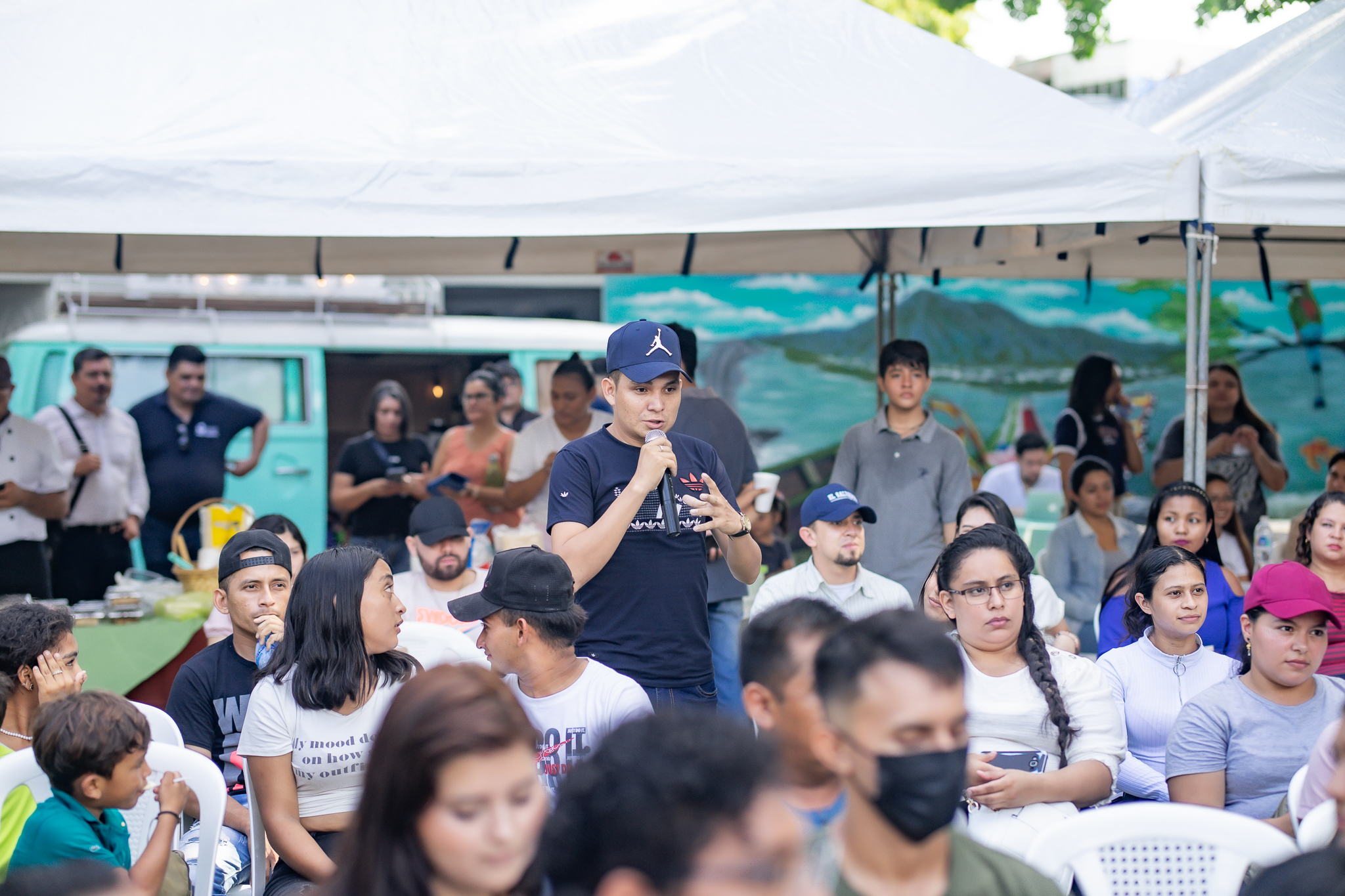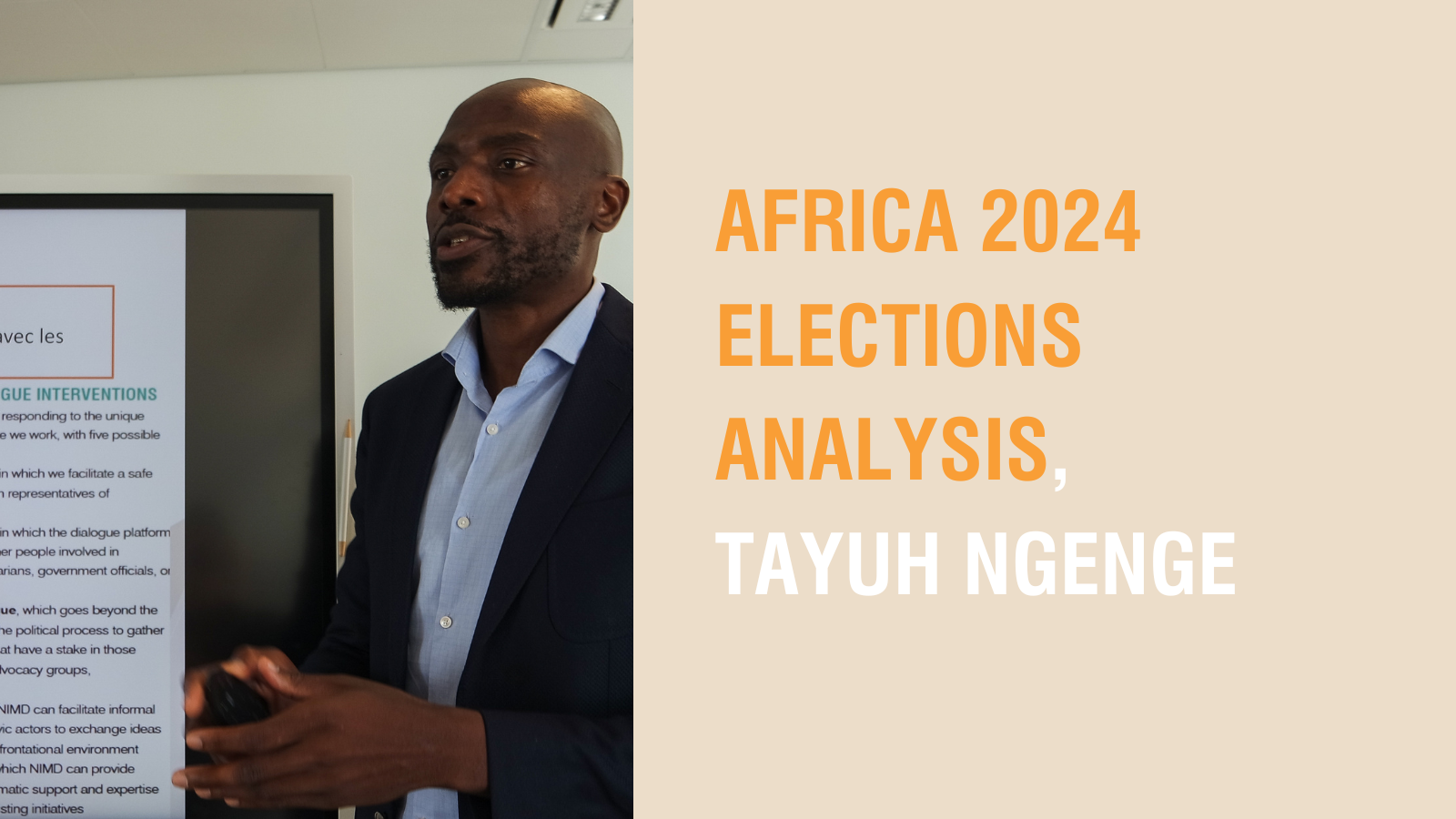Peace Rooms: Ensuring Stability and Transparency in Mozambique’s Electoral Process

Mozambique’s recent elections were a critical test for its democracy, marked by both peaceful progress and significant challenges. This East African nation, which endured a civil war from 1977 to 1992, has since struggled with political instability, electoral fraud, and violence. Observers again in the 2024 elections noted the alarming incidents of violence and electoral misconduct. However, they also noted the efficient functioning of Peace Rooms. These contrasting elements highlight the country’s ongoing struggle for a stable democratic process.
A Room for Peace
A room for peace? For elections? NIMD Partner IMD Mozambique implemented just that in 2014 —a room for peace, known as Sala da Paz.
IMD has long worked in Mozambique to foster dialogue, bring together different political parties, and work towards a robust democratic system. Their insights into the political landscape of Mozambique led to the 2014 initiative of the Peace Rooms platform.
Together with other Civil Society Organizations from across the country, they aimed to respond to the acute need for an independent platform to monitor and respond quickly to potential incidents during the 2014 general elections.
The 2019 Elections
On 15th October 2019, Mozambique held the 6th General Elections and the 3rd Provincial Elections. Unlike before 2019, in which governors were directly appointed by the central government (by the President of Mozambique), for the first time, provincial governors became elected bodies at the provincial level in a head-of-the-list electoral system. The complexity of the upcoming elections brought with it the challenges of credibility, acceptance and legitimization of the results, raising the potential for electoral conflicts.
The Peace Rooms platform monitored in real-time all the moments linked to the realization of the electoral calendar, in particular civic education, voter registration and the registration and submission of candidacies, electoral campaign, voting day and vote counting, noted Lorena Mazive of IMD Mozambique.
For the first time in the history of democracy in Mozambique, the Provincial Governors became elected and not directly appointed by the Head of State. Became the provincial governor, the “head” of the electoral list with the highest votes in each province.
The Electoral Monitoring platform, Sala da Paz, has contributed to strengthening the transparency of electoral processes in Mozambique. This contribution has been given through reports and press releases that result from election observation. The Peace Room produces policy briefs and studies that bring recommendations for electoral reform, as well as some advocacy for actors to comply with legislation and other electoral regulations. In electoral conflicts, the Peace Room holds sessions that bring together multiple actors to reflect on possible solutions without neglecting separate meetings with the parties in conflict and other relevant actors.
Evolution of the Peace Rooms

Since their inception in 2014, the Peace Room platforms have evolved to effectively monitor and share real-time information about the electoral cycle – such as voter registration, campaign, voting day and results tabulation. Their work includes appointing specialized working groups (Taskforces) for specific follow-up actions on the issues raised during monitoring and organizing meetings with the key stakeholders, like political parties, EMB and CSO’s, to resolve electoral issues. For example, the peace room contributed to the training of political parties in matters of electoral litigation. These trainings contributed significantly to establishing a set of electoral legal processes by political parties, which only happened after the 2023 and 2024 elections.
The Peace Room has also greatly helped with roundtable initiatives aimed at reflecting on the integrity of electoral processes. It has also contributed to the dissemination of political parties’ electoral codes of conduct for greater peaceful coexistence and respect for democratic principles during the electoral campaign phase.
These initiatives were carried out with the collaboration of state actors (National Electoral Commission, Members of Parliament) and civil society organizations (e.g. Mozambican Bar Association and Mozambican Association of Judges, among other civil society actors).
The Role of Peace Rooms
The reasons for my participation through the Sizanane Maxaca Association in the Sala da Paz Platform is due to the need to carry out serious and fundamental work during the electoral process in a national context marked by many undemocratic actions. The presence of the Sala da Paz aimed to record and highlight possible cases of political violence and other attacks against the electoral system and democracy. On the other hand, we also wanted to lend an attentive and external perspective, to strengthen the electoral process, its integrity and transparency. Herminio Jose, Sizanane Maxaca Civil Society Organization
In short, the Peace Rooms serve three main purposes:
- Reduce Violence: First, to work on reducing the levels of violence during electoral processes.
- Capacity and Coordination: Second, to provide the main actors with the necessary capacity and space to coordinate joint actions and respond quickly, adequately, and peacefully to electoral incidents and disputes.
- Evidence-based Information: Third, to provide key stakeholders with credible, evidence-based information gathered by election observers in real-time before, during, and after election day.
Collaboration for Democracy
Peace Rooms are part of a larger civil society effort to ensure smooth and peaceful elections. They work collaboratively with political parties, the electoral management body (OGE), the General Police Command, media organizations, and other civil society organizations.
These efforts are not limited to the election period alone. The Peace Rooms have become an integral part of civil society’s broader election effort, extending their influence and activities before, during, and after elections. This continuous engagement ensures that electoral processes are monitored comprehensively and any issues are addressed promptly.

Addressing Recent Violence
Despite the positive impact of the Peace Rooms, the elections were marred by reports of violence and misconduct. According to the Peace Rooms platform, the Police of the Republic of Mozambique (PRM) responded with excessive and disproportionate force to peaceful protests following the brutal murders of Elvino Dias and Paulo Guambe. The PRM’s actions included the use of tear gas, rubber bullets, and live ammunition against demonstrators and journalists, violating the protestor’s constitutional right to peaceful assembly and leading to a devastating loss of life of those protesting.
Sala da Paz condemned these actions, highlighting the importance of protecting civil and political rights and calling for rigorous investigations to ensure accountability. They emphasized that impunity undermines efforts to strengthen the rule of law and erodes public trust in democratic institutions. Read their full statement here (in Portuguese).
Shifts in Power and Future Commitment
The preliminary results of the voting process published by the National Electoral Commission show a notable shift in power, with the opposition party, Optimist Party for the Development of Mozambique (PODEMO), entering parliament for the first time in ten years. Their entrance into parliament also meant removing one of the three long-sitting parties – the Democratic Movement of Mozambique (MDM), which did not win enough seats. The shake-up in parliament meant that over 50% of the newly elected MPs were fresh faces, highlighting a change in voter sentiment. However, these results await validation and proclamation by the Mozambican Constitutional Court in December.
IMD is supporting these MPs, organizing induction sessions to help them navigate their roles and responsibilities. This support is crucial due to the high expectations and pressure to perform as citizens wait anxiously.
Long-term Commitment and Collaboration

The Peace Rooms represent a continuous effort to ensure the integrity and legitimacy of the electoral process. They are jointly implemented by several CSOs across Mozambique, all hailing from different areas—from climate to the rule of law—united by the collective belief and will to ensure elections run smoothly and peacefully.
The recent elections highlighted progress and challenges, underscoring the importance of a long-term commitment to democratic processes. By maintaining vigilance and dedication to democratic principles, Mozambique can work towards a future where elections are fair, transparent, and free from violence.
The ongoing efforts of Peace Rooms, alongside support from civil society, political actors, and international partners, are essential in fostering a stable and democratic environment in the country. With a long-term commitment and collaborative approach, Mozambique can build on the progress and address the challenges faced, ensuring a robust democratic process for years to come.


